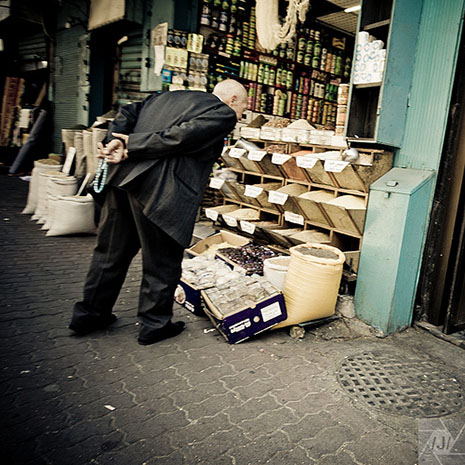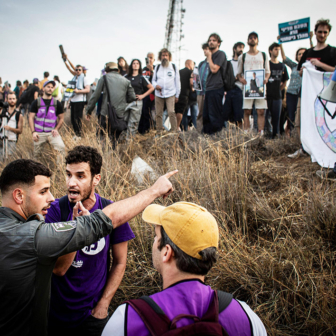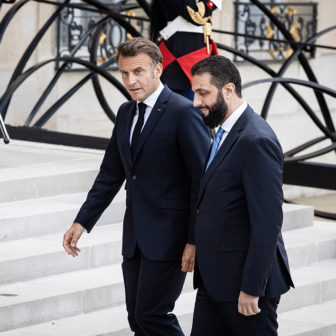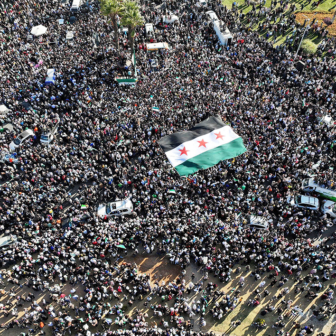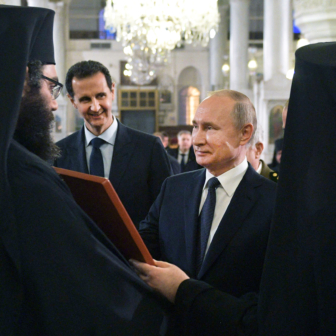THE Middle East is changing. An obvious statement, perhaps, given the protests of the past year, which have claimed the political scalps of leaders in Tunisia, Egypt and Libya, and seen near civil war conditions in Yemen and Syria, protests of varying magnitude in the majority of countries in the region, and reforms or concessions by leaders in other parts of the region.
But even in countries that are comparatively quiet, things are changing, not just because of the protests but also as a result of economic transformation, globalisation, and social and cultural change. Returning to the Jordanian capital, Amman, for the first time in five years – and for my first substantial visit in nearly a decade and a half – I found marked differences, some more positive than others.
Most noticeable is the local lifestyle, which seems both more Western and more expensive. There are still plenty of pious women around who wear a veil or headscarf. Far fewer here are the “ninjas,” as some secular locals irreverently call them – women covered in full black garb and head covering, sometimes with gloves hiding their hands as well.
Just a couple of hundred yards north of my apartment is a shopping mall, little different from the malls found across the leafier suburbs of Australia. I can go there and spend around $12 on a ticket at the movie theatre. The bookstore on the fourth floor sells the latest release novels and even a good selection of non-fiction, around half of it in English, for prices that are at best only slightly cheaper than in Australia. Some of the more fashionable boutiques remind me of those in the Queen Victoria Building in Sydney, and charge the same prices, which is amazing in a place where $1000 a month is a very good salary and many people raise a family on less than half of that.
In the Amman of 1996, my last extended visit, there were only two big, Western-style supermarkets. Supermarkets like these are now quite common, and Western goods – whether peanut butter, a new release DVD, or a Gucci handbag – are available all over the city.
The old Amman is still there, of course. The downtown area and the main roundabouts still look very similar to the way they did five, ten or even twenty years ago. The voices on the street are a little different – there are more Iraqis, Egyptians and other nationalities than I remember – but the same favourite shops are there, alongside sites like the impressive Roman amphitheatre and the Citadel.
Near my home, only a block or so from the upmarket mall, more traditional shops still sell basic family clothes for a few dollars, illegally produced DVDs for around $1.50, and locally printed books for a couple of dollars. You can still buy a felafel roll and a local drink for around $1, even if more and more people are spending $10 or $15 or more on a nice dinner.
Property is especially costly. The wealthier of the Iraqis here – who effectively have a right of abode here and who number around half a million – are blamed by locals for investing in real estate and pushing up the prices of housing. Whether it is the Iraqis’ fault or not, the cost of buying or renting property has certainly shot through the roof: the cost of ordinary property has probably trebled in the past decade or so, and the most upmarket suburbs are costlier than the average in Sydney or Melbourne. Considering the typical (good) salary here, the prices are crushing.
Back in 1996 there were probably as many Iraqis; in that period, they had fled the recent 1991 war. There was still a strong sense of hospitality on the streets: I remember several taxi drivers – most of them Palestinian refugees, who are a majority of the population here – explaining to me that there was an onus on Jordan to extend traditional, and unconditional, hospitality to Iraqi refugees. I haven’t heard that this time; if anything, I’ve heard a few people express the opposite view.
The political system is not greatly different from fifteen years ago, but Abdullah II, who took over after his father’s death in 1999, is a different leader. He is young and energetic, but that hasn’t always meant that he’s had a smooth ride. Educated almost exclusively in the United States and England, he was criticised at first because his Arabic was not very good. He was seen as too Western-leaning, and too much under the control of his wife. This changed, however: he improved his Arabic to near-flawless, built solid ties with the major tribal groups, and developed and refined his popular image.
He’s also been politically astute. The protests in the Arab world have not completely bypassed Jordan: earlier this year there were regular rallies downtown. But the king deftly deflected the focus of popular anger to the cabinet – which he appoints, though many people seem not to make the connection – and of course the bureaucracy, and has even developed a compassionate image among many of the protesters. (Reportedly he even sent police down to some protests to hand out drinks to the demonstrators.) In this way he is as skilled as his father. He probably shares many of the same advisers, but there is little doubt he’s just as smart, too.
Jordan is different from other countries in the neighbourhood. Jordanians are fairly relaxed and moderate in political terms, and notwithstanding a few radicals, have a lot more time for their monarch than the populations of several of the nearby republics have had for their presidents.
The dynamic of demography counts too. Along with the large Iraqi population, around two-thirds of Jordan’s residents are Palestinian. The key Jordanian tribes, already nervous about being a minority, don’t want to put their position and the advantages they often enjoy in jeopardy. The king is counting on this: it is why he improved ties with the tribes so quickly once he assumed power, and it is why, as much as he balances the competing political forces in the country, he takes particularly good care of the key social groups backing the regime, and especially the tribes. He has also handled Western aid donors carefully, which has given him additional largesse to spend on dealing with socioeconomic problems and building new infrastructure.
This does not mean there is no change, however. The king is acting to improve social and economic conditions in the country, enhance press freedoms, and strengthen some political institutions. And these reforms pre-date the Arab Spring. While he will probably not cede true political power, the landscape in which politics occurs is changing, and is likely to change further in the coming years.
In some ways, then, Jordan seems better. It has made an accommodation with globalisation – and with other social and economic changes – that seems happier than those of many other Arab states. Yet life is still difficult for many Jordanians, and social strains remain. Life is even more expensive than a decade ago – and it was tough enough to make ends meet back then. That most Jordanians can do so, and remain among the friendliest people in the world in the process, is testament to them and to the many positive characteristics underlying this unique society. •
